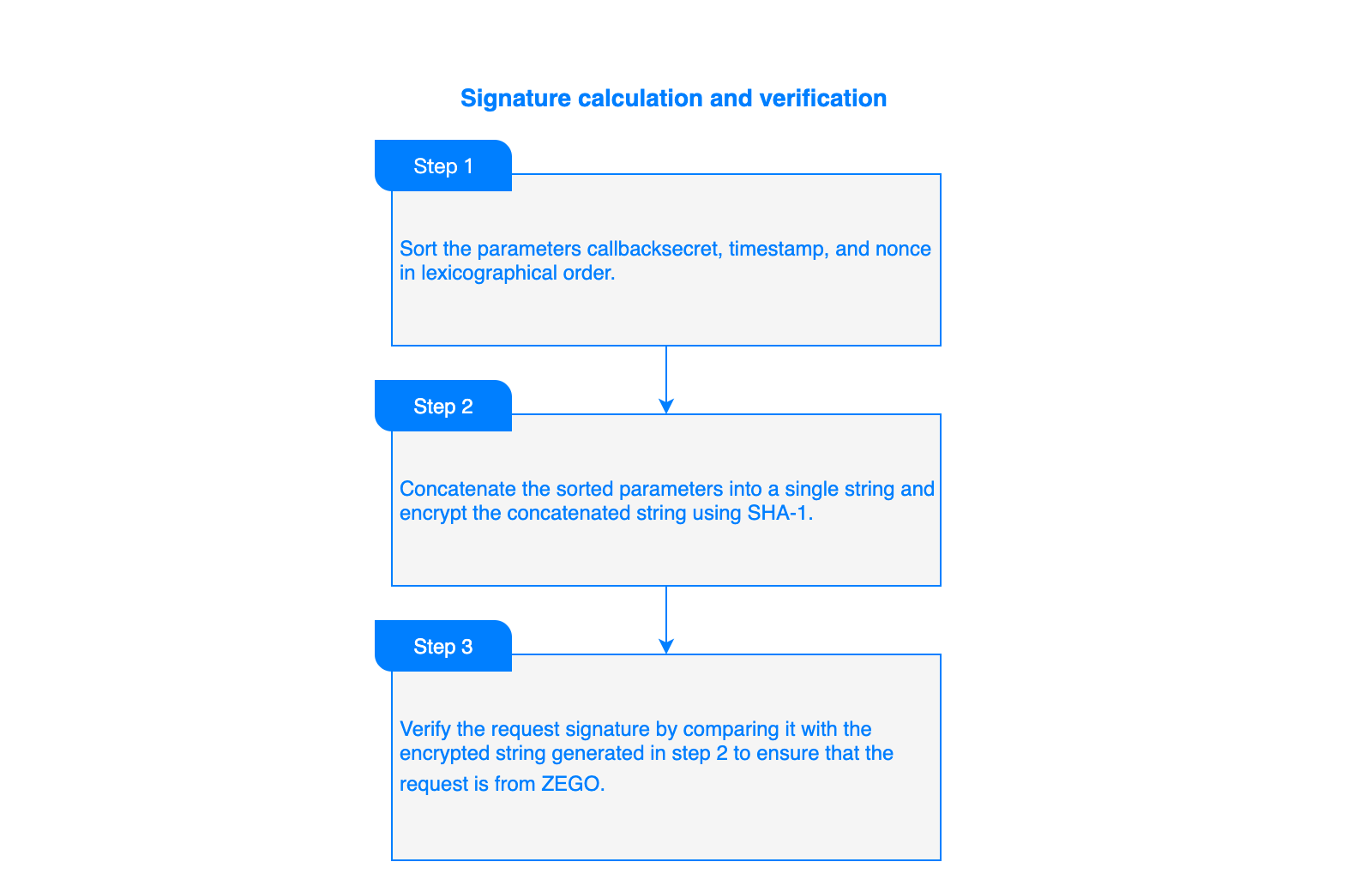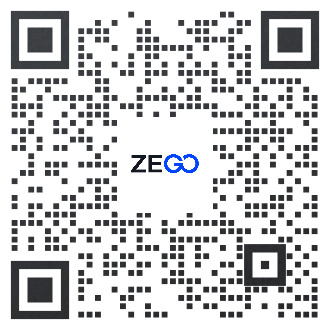提交工单
咨询集成、功能及报价等问题
To ensure system security, you must authenticate every callback request sent from the ZEGO server to your application server. You can verify the callback request by comparing the signature included in the request with the locally calculated signature.
The following flow chart shows the signature calculation and verification process:
)
| Parameter | Description |
|---|---|
| callbacksecret | The secret key for verifying the callback request sent from the ZEGOCLOUD server to your application server. This callback secret key is automatically generated for your project when you create your project in the ZEGOCLOUD Admin Console. To view the callback secret of your project: 1. Log in to the ZEGOCLOUD Admin Console. 2. Click Edit for your project. 3. In the Basic Configurations section, view the CallbackSecret. |
| timestamp | A Unix timestamp. |
| nonce | A random number. |
Refer to the following sample code for how to generate and verify the callback request signature.
// Obtain the value of signature, timestamp, and nonce from the request parameters.
$signature = $_POST["signature"];
$timestamp = $_POST["timestamp"];
$nonce = $_POST["nonce"];
$secret = callbacksecret;// Use the CallbackSecret obtained from the ZEGO Admin Console.
$tmpArr = array($secret, $timestamp, $nonce);
sort($tmpArr, SORT_STRING);
$tmpStr = implode( $tmpArr );
$tmpStr = sha1( $tmpStr );
if( $tmpStr == $signature ){
return true;
} else {
return false;
}// Obtain the value of signature, timestamp, and nonce from the request parameters.
String signature = request.getParameter("signature");
long timestamp = request.getParameter("timestamp");
String nonce = request.getParameter("nonce");
// Use the CallbackSecret obtained from the ZEGO Admin Console.
String secret = callbacksecret;
String[] tempArr = {secret, ""+timestamp, nonce};
Arrays.sort(tempArr);
String tmpStr = "";
for (int i = 0; i < tempArr.length; i++) {
tmpStr += tempArr[i];
}
tmpStr = org.apache.commons.codec.digest.DigestUtils.sha1Hex(tmpStr);
return tmpStr.equals(signature);$timestamp = 1470820198;
$nonce = 123412;
$secret = 'secret';
The concatenated string before encryption:1234121470820198secret
The string generated after encryption:5bd59fd62953a8059fb7eaba95720f66d19e4517